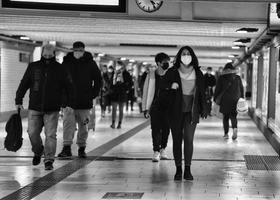For the 2025-26 school year, there are 8 public elementary schools serving 1,851 students in the neighborhood of West Irondequoit, Rochester, NY.
The top ranked public elementary schools in West Irondequoit are Briarwood School, Listwood School and Brookview School. Overall testing rank is based on a school's combined math and reading proficiency test score ranking.
The neighborhood of West Irondequoit, Rochester, NY public elementary schools have an average math proficiency score of 67% (versus the New York public elementary school average of 52%), and reading proficiency score of 71% (versus the 48% statewide average).
Minority enrollment is 28% of the student body (majority Hispanic), which is less than the New York public elementary school average of 61% (majority Hispanic).
Best Public Elementary Schools in the neighborhood of West Irondequoit, Rochester, NY (2025-26)
School
(Math and Reading Proficiency)
(Math and Reading Proficiency)
Location
Quick Facts
Rank: #11.
Briarwood School
(Math: 80-89% | Reading: 70-79%)
Rank:
Rank:
10/
Top 10%10
215 Briarwood Dr
Rochester, NY 14617
(585) 336-1610
Rochester, NY 14617
(585) 336-1610
Gr: K-3 | 158 students Student-teacher ratio: 14:1 Minority enrollment: 24%
Rank: #22.
Listwood School
(Math: 70-79% | Reading: 70-79%)
Rank:
Rank:
9/
Top 20%10
325 List Ave
Rochester, NY 14617
(585) 336-1640
Rochester, NY 14617
(585) 336-1640
Gr: PK-3 | 176 students Student-teacher ratio: 14:1 Minority enrollment: 21%
Rank: #33.
Brookview School
(Math: 70-79% | Reading: 60-69%)
Rank:
Rank:
9/
Top 20%10
300 Brookview Dr
Rochester, NY 14617
(585) 336-1630
Rochester, NY 14617
(585) 336-1630
Gr: K-3 | 151 students Student-teacher ratio: 10:1 Minority enrollment: 28%
Rank: #44.
Iroquois Middle School
(Math: 74% | Reading: 60%)
Rank:
Rank:
8/
Top 30%10
150 Colebrook Dr
Rochester, NY 14617
(585) 342-3450
Rochester, NY 14617
(585) 342-3450
Gr: 4-6 | 398 students Student-teacher ratio: 11:1 Minority enrollment: 26%
Rank: #55.
Seneca School
(Math: 60-69% | Reading: 60-69%)
Rank:
Rank:
8/
Top 30%10
4143 St Paul Blvd
Rochester, NY 14617
(585) 336-1620
Rochester, NY 14617
(585) 336-1620
Gr: K-3 | 169 students Student-teacher ratio: 12:1 Minority enrollment: 25%
Rank: #66.
Southlawn School
(Math: 60-69% | Reading: 55-59%)
Rank:
Rank:
8/
Top 30%10
455 Rawlinson Rd
Rochester, NY 14617
(585) 266-5070
Rochester, NY 14617
(585) 266-5070
Gr: K-3 | 232 students Student-teacher ratio: 11:1 Minority enrollment: 37%
Rank: #77.
Rogers Middle School
(Math: 64% | Reading: 52%)
Rank:
Rank:
7/
Top 50%10
219 Northfield Rd
Rochester, NY 14617
(585) 342-1330
Rochester, NY 14617
(585) 342-1330
Gr: 4-6 | 413 students Student-teacher ratio: 11:1 Minority enrollment: 36%
Rank: #88.
Colebrook School
(Math: 40-49% | Reading: 60-69%)
Rank:
Rank:
6/
Top 50%10
210 Colebrook Dr
Rochester, NY 14617
(585) 336-1600
Rochester, NY 14617
(585) 336-1600
Gr: K-3 | 147 students Student-teacher ratio: 8:1 Minority enrollment: 29%
Frequently Asked Questions
What are the top ranked public elementary schools in the neighborhood of West Irondequoit, Rochester, NY?
The top ranked public elementary schools in the neighborhood of West Irondequoit, Rochester, NY include Briarwood School, Listwood School and Brookview School.
How many public elementary schools are located in the neighborhood of West Irondequoit, Rochester?
8 public elementary schools are located in the neighborhood of West Irondequoit, Rochester.
What is the racial composition of students in the neighborhood of West Irondequoit, Rochester?
the neighborhood of West Irondequoit, Rochester public elementary schools minority enrollment is 28% of the student body (majority Hispanic), which is less than the New York public elementary schools average of 61% (majority Hispanic).
Recent Articles

10 Advantages of Public Education in 2025
Explore 10 key benefits of public education in 2025, with fresh statistics, expert insights, and real-world examples for parents and educators.

COVID-19’s Lasting Impact on U.S. 51³Ô¹ÏÍøºÚÁÏ (2025)
Explore how COVID-19 continues to affect U.S. public schools in 2025: learning losses, enrollment shifts, mental health, and recovery strategies.
